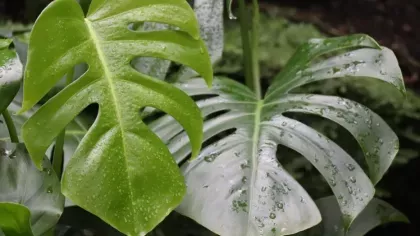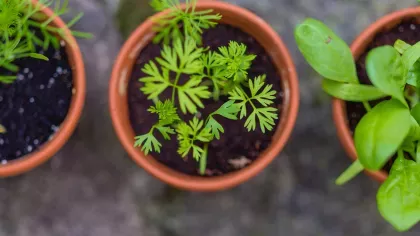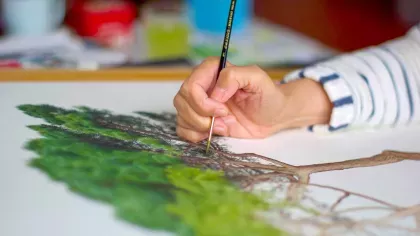8 April 2020
Mindfulness in your home
Make a space during this chaotic time to centre yourself in nature.
Karen Liebenguth, who runs Kew's mindfulness courses, gives us some tips on how you can ground yourself.

Nature can help us when living in unusual and rapidly changing times.
Right now in this difficult time, our hard-wired fight-flight-freeze survival response could be triggered. If we remain in this heightened alert state for a prolonged time, it can affect our physical and mental wellbeing.
Nature can help us to navigate it.
Some things are constant and will always be there to help us through tough times.
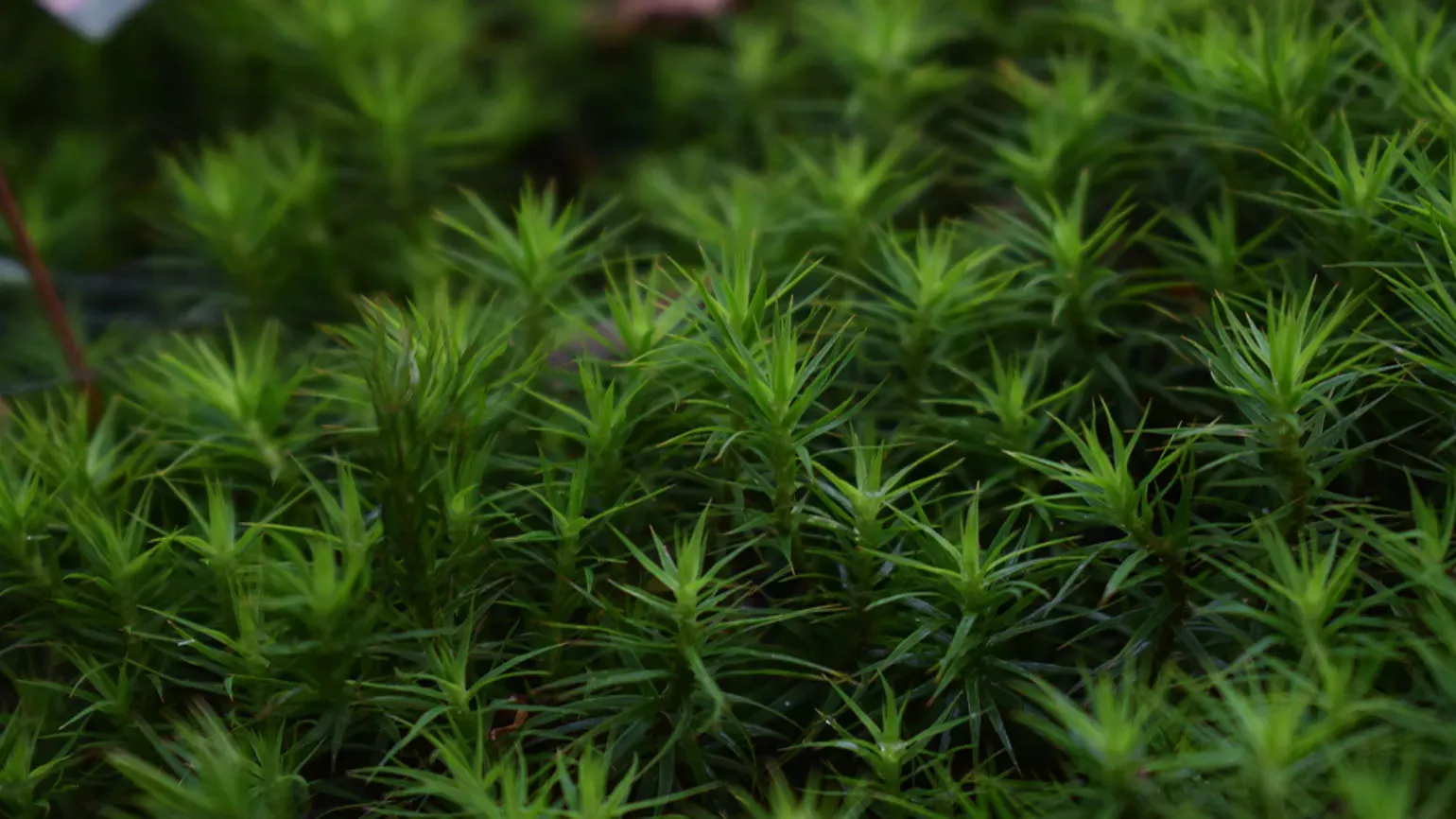
Spending time in nature – in your garden, or in easier times at a park or woodland, among fields or by water – can reduce stress and calm the mind.
Rather than feeling lost in anxious, catastrophic thoughts about the future, nature grounds us.
When we are walking, cycling or sat in our gardens, we give ourselves time to become more attuned to how we are feeling.
Here are some tips on how to spend time in nature, using some practices in mindfulness.
Skywatching
- Step to the window several times a day
- Take 3 conscious deep breaths
- Look at the sky, really look at the formation of the clouds or the different shades of blue or grey (depending on the weather)
- Spend a quiet moment, take 3 more conscious breaths, notice how you are feeling now
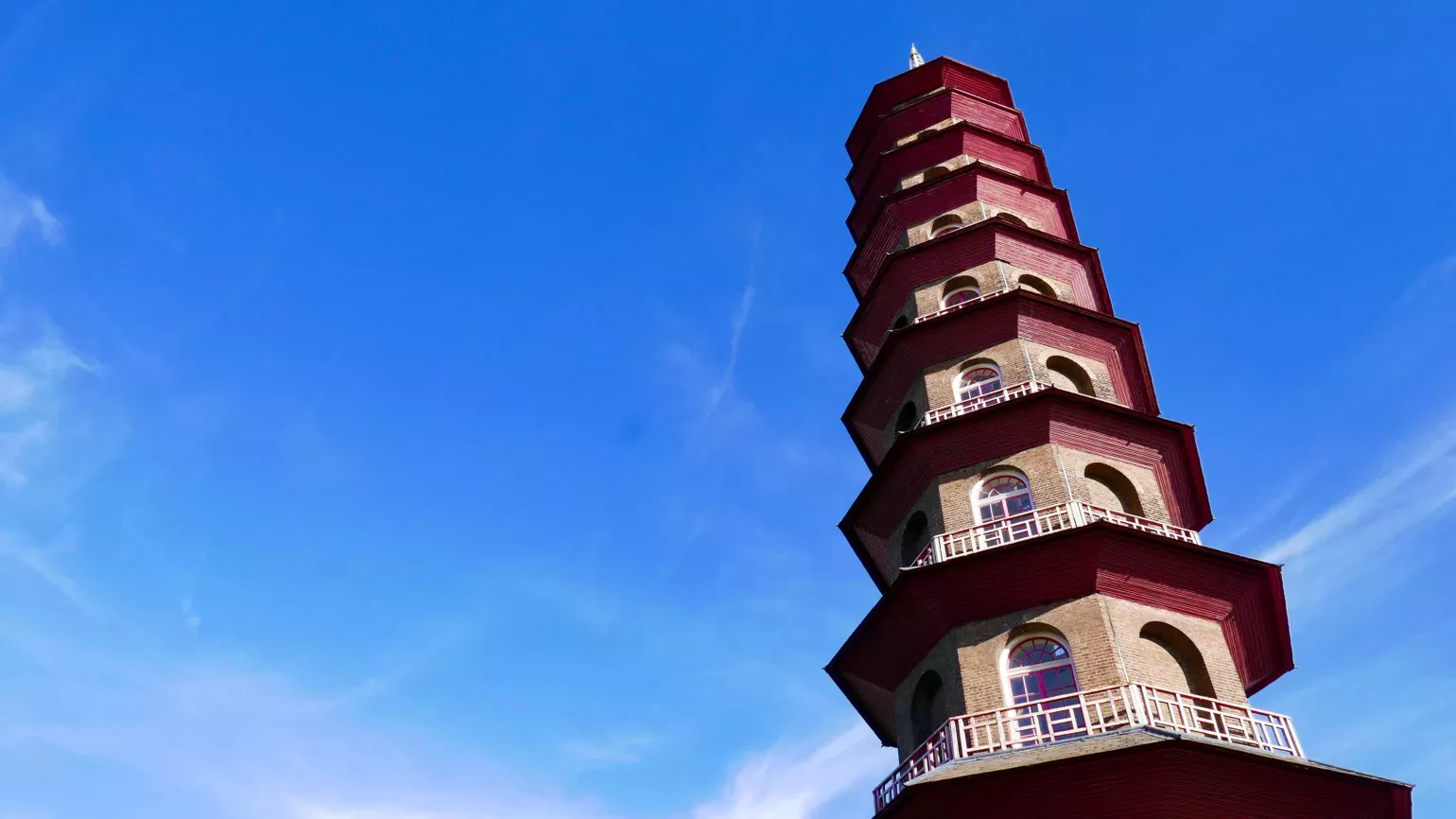
Connect to the Four Elements
Find a quiet, comfortable and undisturbed spot in your home or garden.
You can also do this practice together with your family.
Have the soles of your feet firmly on the floor and rest your hands gently in your lap.
Have your upper body poised with your face soft and relaxed so that the heart can also relax.
- Earth: Notice the solidity of the earth beneath your feet, sense how the earth is holding your whole body; notice the bones in your body as firm as the element earth.
- Water: Bring to mind a nearby river, stream, sea or the rain; the water coming out of your kitchen and shower tap. Tune into the softness and fluidity of water. Notice the shared properties as the fluids that keep your body alive: blood, sweat, saliva, urine.
- Can you get a sense of the blood flowing through your veins?
- Fire: Imagine and feel the warmth and energy of the sun on your skin, the heat of a wood fire or radiator in your home. Now imagine and feel your body temperature, the temperature of your skin, the warmth of your heart radiating well-wishing and kindness.
- Air: Imagine the freshness of spring air on your face, is it cool or soft? Both?
Then notice your breath, soft air floating in and out of your body, really sense the subtle movements of the breath in your body (belly and chest).
At the end of this practice, take a moment and sit quietly and absorb the effect it has on you.
Notice how you are feeling.
This time of radical change can be an immense opportunity be aware of what’s around us, right now, right here.
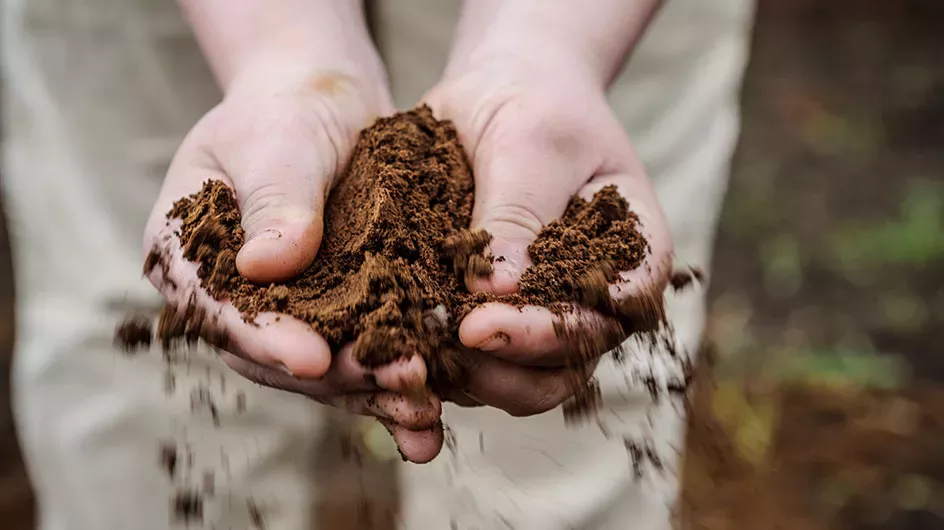
4-3-2-1 nature connection exercise
There are variations of this activity. It can be done anywhere in nature, your back garden or just standing outside your front door.
- Notice 4 things that you see: Rest your eyes on these 4 things, take them in one at a time
- Listen out for 3 sounds that you hear: Really tune into each sound; let each sound come to you
- Focus on 2 things that you can feel: The wind on your skin, the material of your clothes on your body or your feet on the earth
- Pay attention to 1 thing you can smell or touch: The earthy smell in the air, the smell of spring blossom, the touch of a tree trunk or bush, a stone, a leaf or the grass…
Karen Liebenguth is an Eco-therapist, accredited mindfulness teacher, certified coach, mentor and facilitator.
Karen specialises in working with individual clients and groups in natural settings tapping into the beneficial impact nature has on our physical, psychological and emotional wellbeing.
Karen has been running mindfulness courses at Kew Gardens for the last three years as part of Kew’s adult learning programme.

